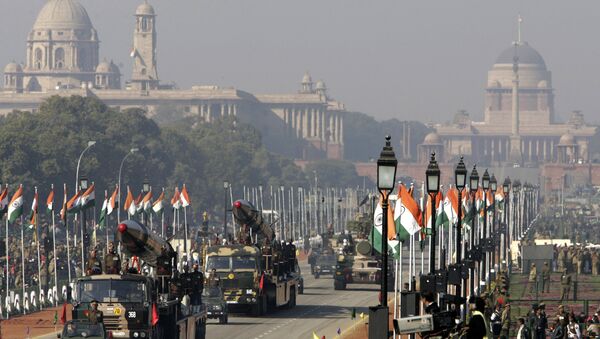The Indian government, which increased the Foreign Direct Investment (FDI) cap in defence sector investments to 74 percent under the automatic route this past May, said that such investments will be subject to scrutiny due to national security concerns.
A press note released by the Department of Promotion of Industry and Internal Trade (DPIIT) said that foreign investment in the sector is subject to security clearance and the guidelines set by the Ministry of Defence.
The DPIIT note said, "Foreign Investments in the Defence Sector shall be subject to scrutiny on grounds of national security and the government reserves the right to review any foreign investment in the defence sector that affects or may affect national security." The note, however, does not elaborate on the reasons why "national security" has been incorporated as one of the pre-requisites for defence FDI approvals.
However, experts believe that in the absence of any clarification from the government, one can only surmise that the national security clause is meant to insulate the foreign investments from attempts at the undermining of India's defence capabilities in terms of both technology and control over production.
“It is reasonable to assume that Chinese investment and technology would be a major concern, though I do not think this clause has been introduced in the FDI policy exclusively, with one country in mind. To my mind, this will put pressure on the traditional suppliers of arms to India, depending on the extent and nature of inputs they get from the countries of concern,” Amit Cowshish, former financial advisor to the Defence Ministry told Sputnik.
The revised defence FDI guidelines propose that any investment beyond 74 percent which is likely to result in access to modern technology will necessitate express government approval.
The defence FDI relaxation was rolled out by Indian Finance Minister Nirmala Sitharaman as a part of the $266 billion COVID-19 economic stimulus package. The idea was to reinvigorate the Indian economy, which has been deeply impacted by the pandemic.
India has been aggressively eyeing import substitution in the defence sector, with high hopes that the sector will help push the Indian economy, which remains marooned by the impact of the COVID-19 pandemic. The Indian government wants to engage in domestic defence manufacturing worth $24 billion by 2025 with exports worth $4.79 billion. The domestic defence manufacturing industry as of 2019 was valued at $11 billion.




